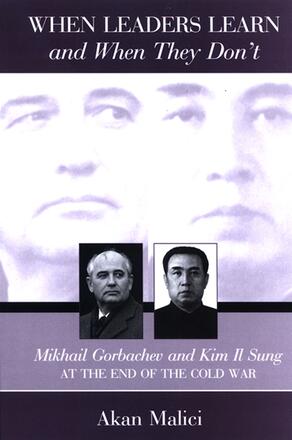
When Leaders Learn and When They Don't
Mikhail Gorbachev and Kim Il Sung at the End of the Cold War
Alternative formats available from:
Develops a new and dynamic theory of foreign policy decision making and experiential learning.
Description
When Leaders Learn and When They Don't investigates two extraordinary leaders—Mikhail Gorbachev and Kim Il Sung—by employing sophisticated methodologies and advancing a new theory of foreign policy decision making. Both leaders redefined the theory and practice of international relations and left a heritage that we face today—a unipolar world in which security threats no longer emanate from the rivalry of two superpowers but rather from the existence of rogue states such as North Korea. Akan Malici demonstrates how Gorbachev moved the antagonistic superpower relationship toward a Kantian world of friends while Kim reified a Hobbesian world of enemies at the end of the Cold War. The book carries implications about declining and newly emerging threats as the configuration of the international system changes.
Akan Malici is Assistant Professor of Political Science at Furman University.
Reviews
"…a highly intelligent book based on the rigorous use of mathematical and linguistic tools. " — Central European Journal of International & Security Studies
"This book makes an important contribution in highlighting the importance of political leadership. It stands in opposition to more deterministic treatments that would say things 'had to happen' in a certain manner. The comparison of Gorbachev and Kim Il Sung brings out the great potential for variation in what a regime does depending upon the presence or absence of learning among top leadership. As an effort to bring together the cognitive and rational choice approaches, this book is among the best I have seen. " — Patrick James, author of International Relations and Scientific Progress: Structural Realism Reconsidered